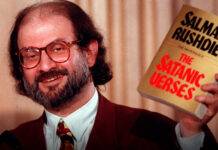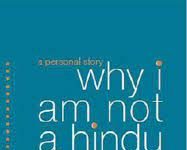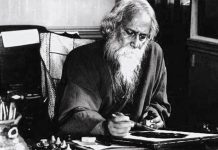The contribution of Science in the cultivation of public rationality and the fight against oppressive social structures can’t be denied but does that mean all other knowledge systems are unimportant or inferior; the recent science march in Bengaluru compels us to ask some important questions that we have long taken for granted.
Kavya Thomas | The New Leam
It is very rare to listen to a non-essentialist perspective on Science. A perspective that does not necessarily look at Science as the most superior or the most fundamental body of knowledge and like other disciplines realises the many shortcomings and follies of both Science and the scientific method. The world today has become one where the larger perception of society is that Science is the knowledge of the future and being intrinsically related to technology and therefore to market/neo-liberal agenda is certainly the most important if not the sole deciding factor of the fate of a nation’s progress or development.

The proliferation of institutions of science and technology in every nook and corner of the county and the propagation of a world view that looks at Science as the most viable career option for students has been in cult in a big way since the neo-liberal era began in India. This has on the one hand meant that pure sciences be it physics, chemistry or mathematics have ceased to be of popular respect as disciplines in their own right and have thus been openly and quite unquestioningly linked to technology to gain popularity among young knowledge seekers and secondly, the very narrow and existentialist perspective that looks at Science as the only valid knowledge system and thus ridicules and demeans all other branches of knowledge especially the arts and the humanities is extremely problematic.
In a country like India where oppressive belief systems, superstitions, religious priest craft, witch hunting and honour killing are rampant despite our claims to modernity the body of knowledge called Science has played an important role to bring to light the wrong doings of tradition and enabled people to cultivate rational value systems. But the question that we must ask in the light of the recent Science March held in Bengaluru is whether Science alone contributes to the development of a progressive society or whether all branches of knowledge including the arts and the humanities collectively create a conducive environment?
The renowned Scientist- philosopher Sundar Sarukkai has reminded us that when Scientists claim that theirs alone is the most superior knowledge and that the scientific method of enquiry is the only relevant method to approach the world, they are doing more harm than good for the society.
He argues that true education should be as much about the capacity to critically reflect on science as on everything else we are taught. He persuades us to imagine the world of education without the enrichment provided by art, music, literature, languages and the humanities.
He also argues that if we close ourselves and insist on only believing that science alone is the way to look at the world then not only will we miss out on a wide variety of perspectives to understand things around us but will then also succumb to a very totalitarian/non-democratic hegemony characteristic of dictatorial regimes.
The idea therefore is to look at science as a rich body of knowledge which certainly has an enormous role to play in society but this should not mean the negation of all other bodies of knowledge be it history, sociology or philosophy. The brilliant observation and philosophic maturity of Sundar Sarrukkai is expressed most poignantly when he says commenting on the recent science march,
“A march based on such an ‘unscientific’ understanding of science cannot be a march for science. It sounds more like a sermon for science. The scientists should instead participate in a public debate on the nature of science and its practice in India. This will take the mystery of scientific knowledge out of gated institutes and private meeting rooms into the public domain, which after all has been funding science for so long without necessarily seeing the returns for the costs it has incurred” ( The Hindu)

Thus what becomes clear is that building up on a body of knowledge is one thing and demeaning the value of all other knowledge systems is quite another. In this way we only impoverish ourselves and deny education its true essence. It is time we questioned the hegemony of science and reinvented it with an emphasis on dialogic exchange. It is also time that the artificial dichotomy between science and humanities, fact and fiction, poetry and mathematics, logic and emotion be overcome and we create an educational environment that helps cultivate the holistic human mind rather than a fragmented soul.
The New Leam has no external source of funding. For retaining its uniqueness, its high quality, its distinctive philosophy we wish to reduce the degree of dependence on corporate funding. We believe that if individuals like you come forward and SUPPORT THIS ENDEAVOR can make the magazine self-reliant in a very innovative way.














